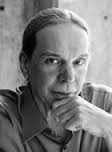Lyle Mays
| Lyle Mays | |
|---|---|
 | |
| Background information | |
| Birth name | Lyle David Mays |
| Born |
November 27, 1953 Wausaukee, Wisconsin, U.S. |
| Genres | Jazz, jazz fusion, contemporary classical |
| Occupation(s) | Musician, composer, architect, software manager |
| Instruments | Keyboards |
| Years active | 1975–present |
| Labels | ECM, Warner Bros., Geffen, Nonesuch |
| Associated acts | Pat Metheny Group |
Lyle Mays (born November 27, 1953) is an American jazz pianist and composer from Wausaukee, Wisconsin.[1][2] He is best known for his work with guitarist Pat Metheny as a member of the Pat Metheny Group. With Metheny, Mays has composed and arranged almost all of the group's music and has won eleven Grammy Awards.[3]
Biography
While growing up, Mays had four main interests: chess, mathematics, architecture and music. His parents were musically inclined – his mother was a pianist, his father was a guitarist – and he was able to study the piano with the help of instructor Rose Barron. She allowed Mays the opportunity to practice improvisation after the structured elements of the lesson were completed. At age 9 he played organ at a family member's wedding, and at age 14 he began to play organ in church.[4] In summer camp he was introduced to important jazz artists.[5]
Bill Evans' album Live in Montreux and Miles Davis' album Filles de Kilimanjaro were important influences on his formation as a jazz musician. He graduated from the University of North Texas after attending the University of Wisconsin-Eau Claire.[6][7][8] He composed and arranged for the world-renowned One O'Clock Lab Band and was the composer and arranger of their highly regarded and Grammy nominated Lab 75 album.[9]
After leaving UNT, Mays toured with Woody Herman's group for approximately eight months.
In 1974, he met Pat Metheny with whom he later founded the Pat Metheny Group. During that period he lived in New York City, so poor that he was "almost starving." Mays has won eleven Grammys with the Pat Metheny Group and been nominated for four others for his own work.[10]
In an interview with the JAZZIZ magazine in 2016, Mays revealed his current career as a software manager.[11]
Work
In the Pat Metheny Group, Mays provides arrangements, orchestration and the harmonic and metric backbone of the group's musical signature. He occasionally performs on electric guitar as well. On the songs Forward March and Yolanda You Learn from the Pat Metheny Group album First Circle (1984), and in the concert tour for that album, he played trumpet.[5]
His albums as a leader reflect a large variety of musical interests: Lyle Mays and Street Dreams build on the content of the Pat Metheny Group, while Fictionary is a straight-ahead jazz trio session featuring fellow North Texan Marc Johnson on bass and Jack DeJohnette on drums. Solo: Improvisations for Expanded Piano is focused on solo piano improvisations.
He has also composed and recorded music for children's records, such as Tale of Peter Rabbit, with text read by Meryl Streep.[5]
The Steppenwolf Theater Company of Chicago featured an assortment of compositions by Lyle Mays and Pat Metheny for their production of Lyle Kessler's play Orphans.[12]
He has composed classical music such as "Twelve Days in the Shadow of a Miracle", a piece for harp, flute, viola and synthesizer (recorded 1996 by the Debussy Trio).[13]
Instruments
Mays's setup centers on a Steinway Grand Piano, which has MIDI built into it. He previously used an Oberheim 8 Voice Synth, a Sequential Circuits Prophet 5, Kurzweil 250, Korg DW-8000, and many more. Currently, Mays uses two Korg Triton keyboards in addition to his piano.
Select discography
Solo
- Lyle Mays (1986, Geffen)
- Street Dreams (1988, Geffen)
- Fictionary (1993, Geffen)
- Solo: Improvisations for Expanded Piano (2000, Warner Bros.)
- The Ludwigsburg Concert (2015, SWR Jazzhaus)
Pat Metheny and Lyle Mays
Pat Metheny Group
Pat Metheny
- Watercolors (1977, ECM)
- Secret Story (1992, Geffen)
As sideman
- The Sound of the Wasp, Phil Wilson (1975, ASI)
- Home, Steve Swallow (1979, ECM)
- Shadows and Light, Joni Mitchell (1980, Asylum)
- Later That Evening, Eberhard Weber (1982, ECM)
- When Elephants Dream of Music, Bob Moses (1982, Gramavision)
- Girl at Her Volcano, Rickie Lee Jones (1983, Warner Bros.)
- Mrs. Soffel, film soundtrack, released on Film Music, Mark Isham (1985, Windham Hill)
- The Story of Moses, Bob Moses (1987, Gramavision)
- "Heritage", Earth, Wind & Fire (1990, Columbia)
- Medicine Music, Bobby McFerrin (1990, EMI)
- Premonition, Paul McCandless (1991, Windham Hill)
- Live in Warsaw (1976), Woody Herman (1992, Storyville)
- Falling Out, Igor Butman (1994, Impromptu)
- Points of View, Nando Lauria (1994, Narada)
- Noa, Noa (1994, Geffen)
- East Coast West Coast, Toots Thielemans (1994, Private Music)
- Schemes and Dreams, Pat Coil (1994, Sheffield Lab)
- Fifteen Year Anniversary, Betty Buckley (2000, K.O. Productions)
See also
References
- ↑ "NTSU Lab Band Record on Sale". Denton Record-Chronicle. October 2, 1974. p. 22. Retrieved December 5, 2014 – via Newspapers.com.

- ↑ "Grammy Nomination to Lab Band Album". The Courier-Gazette. January 30, 1976. p. 2. Retrieved December 5, 2014 – via Newspapers.com.

- ↑ http://jazz.unt.edu/node/1043
- ↑ http://www.jazzmusicarchives.com/lyle-mays.aspx
- 1 2 3 "UNT Division of Jazz Studies". University of North Texas. Retrieved March 19, 2010.
- ↑ http://digicoll.library.wisc.edu/cgi-bin/WI/WI-idx?type=HTML&rgn=div1&byte=1614408730
- ↑ http://northtexan.unt.edu/content/guest-artist-lyle-mays
- ↑ http://www.reallygoodmusic.com/rgm.jsp?page=itemDetail&iid=123408
- ↑ http://jazz.unt.edu/?q=node/303
- ↑ "Grammy Award Winners". www2.grammy.com. Retrieved March 19, 2010.
- ↑ "Lyle Mays". JAZZIZ Magazine. Retrieved September 23, 2016.
- ↑ "THEATER: Steppenwolf presents 'Orphans'". The New York Times. Retrieved August 16, 2013.
- ↑ http://www.sheetmusicplus.com/title/Twelve-Days-In-the-Shadow-of-a-Miracle/8275017
| Wikimedia Commons has media related to Lyle Mays. |
Additional reading
- Music and Intellect – a portrait of Lyle Mays
- jazzreview.com Interview: Lyle Mays Part 1
- jazzreview.com Interview: Lyle Mays Part 2
- The Low Down on The Way Up – The making of The Way Up